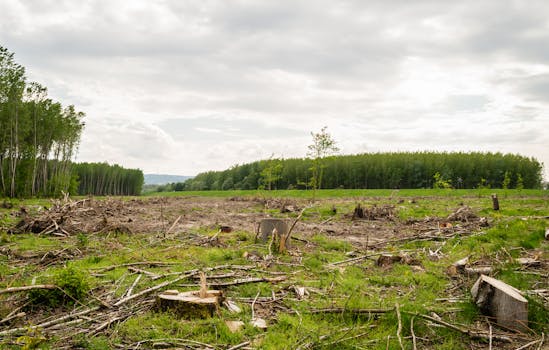
Introduction

The impact of climate change on global ecosystems is a pressing issue that affects every living organism on our planet. As the climate warms, ecosystems face unprecedented challenges that threaten their stability and functionality. This article delves into the various ways climate change is reshaping global ecosystems and what this means for biodiversity and human survival.
Biodiversity Loss

One of the most significant impacts of climate change is the loss of biodiversity. As temperatures rise, many species struggle to adapt to new conditions. For instance, coral reefs, which are incredibly sensitive to temperature changes, are experiencing widespread bleaching. This phenomenon not only affects the corals themselves but also the myriad of species that depend on these ecosystems for survival.
Additionally, many terrestrial species are shifting their ranges towards cooler areas, such as higher altitudes or latitudes. This shift can lead to competition between native and invasive species, further endangering local biodiversity. The Intergovernmental Panel on Climate Change (IPCC) has warned that if global temperatures rise by 1.5°C, approximately 1 million species could face extinction.
Habitat Destruction

Climate change is also contributing to habitat destruction across the globe. Rising sea levels threaten coastal ecosystems, such as mangroves and wetlands, which serve as crucial buffers against storms and flooding. Moreover, increased frequency of wildfires, driven by hotter and drier conditions, devastates vast areas of forest, leading to loss of habitat for countless species.
As ecosystems are altered, the services they provide, such as clean water, air purification, and soil fertility, are also compromised. The destruction of habitats not only impacts wildlife but also poses severe challenges for human communities that rely on these ecosystems for their livelihoods.
Shifting Weather Patterns

Climate change is causing shifts in weather patterns that have profound implications for ecosystems. Changes in precipitation patterns can lead to droughts in some areas while causing flooding in others. These fluctuations disrupt the delicate balance within ecosystems, affecting food availability and species interactions.
For instance, altered rainfall patterns can impact plant growth, which in turn affects herbivores and the predators that rely on them. The timing of seasonal events, such as flowering and migration, is also changing, leading to mismatches in ecological relationships. As these changes unfold, the resilience of ecosystems is tested, and their ability to recover from disturbances is diminished.
Conclusion

The impact of climate change on global ecosystems is profound and multifaceted. Biodiversity loss, habitat destruction, and shifting weather patterns are just a few of the ways that climate change is altering the natural world. It is crucial for governments, organizations, and individuals to take action to mitigate climate change and protect our planet’s ecosystems. The health of our ecosystems is integral to our survival, and urgent steps must be taken to secure a sustainable future.



